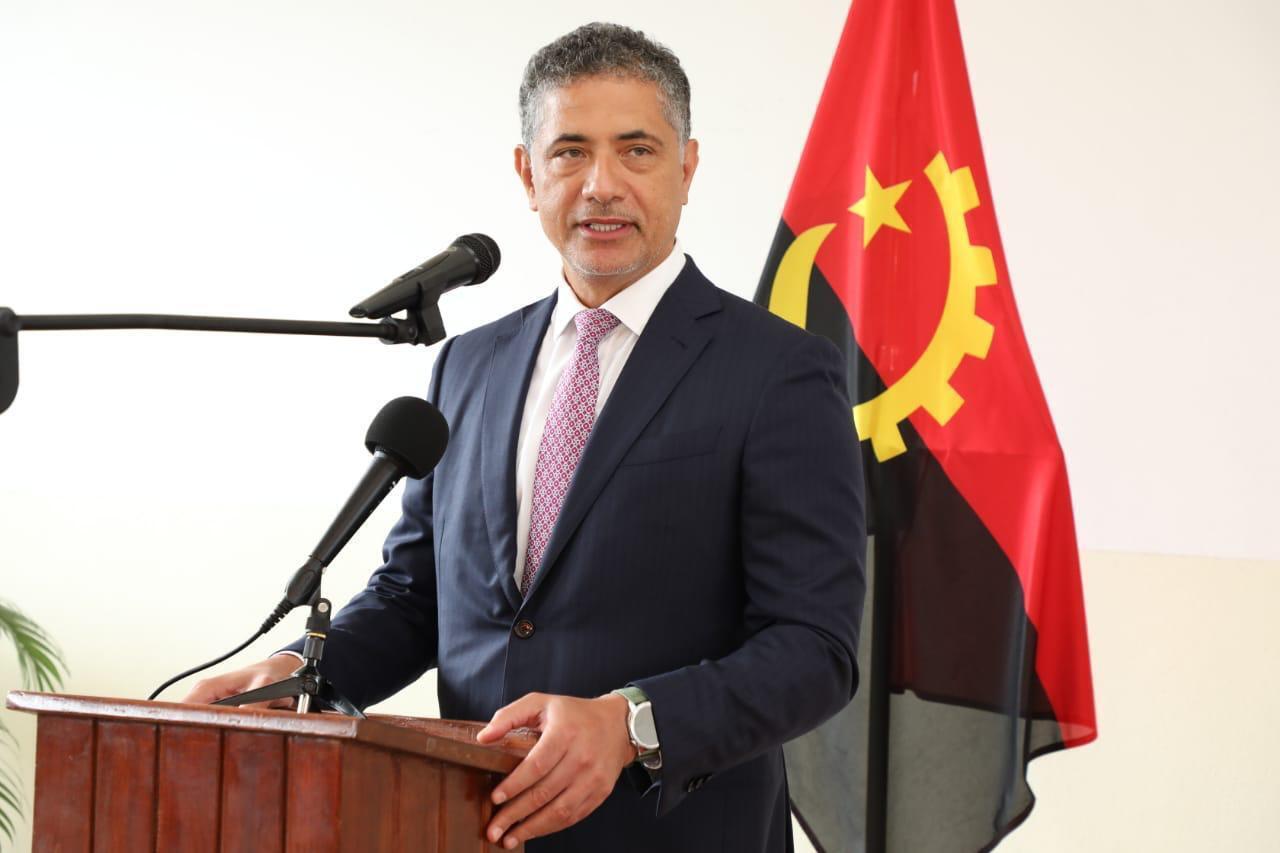The Minister of Energy and Water, João Baptista Borges, highlighted on Thursday, June 20, 2024, in Macau, the significance of the Forum as an opportunity to showcase major projects in the Energy and Water sectors to the financial institutions in attendance and to engage in discussions with government representatives from the People’s Republic of China.
Full Speech of the Minister:
Your Excellency, Mr. Ho Iat Seng,
Chief Executive of the Macau Special Administrative Region, People’s Republic of China;
Honorable Representatives of Diplomatic Missions and International Organizations accredited to the People’s Republic of China;
Esteemed Mr. Fang Qiuchen,
President of the China International Contractors Association;
Executive Directors and Senior Officials from Public, Private, and Financial Institutions;
First and foremost, on behalf of the Government of the Republic of Angola, I would like to extend our deep gratitude for the invitation to participate in the 15th Edition of the International Infrastructure Investment and Construction Forum (IIICF) in Macau/China, under the theme “Green Innovation, Digital Connectivity.” This forum brings together entrepreneurs from Angola and China, aiming to find shared paths for the social and economic development of our two nations, which share a long-standing tradition of friendship and cooperation.
Secondly, I would also like to commend this initiative, which holds great importance for the China-Angola partnership, particularly as it coincides with a significant phase in the evolution of our relationship, marked by the recent visit of the President of Angola to China on March 15. This visit culminated in the signing of several bilateral agreements, including the Agreement on the Promotion and Reciprocal Protection of Investments, a legal framework designed to foster deeper economic cooperation, encourage capital flows, and promote economic development between our two countries.
Your Excellencies, Ladies, and Gentlemen:
Today, humanity faces enormous challenges, especially in areas such as energy transition and security, water security, innovation, combating climate change, food security, artificial intelligence, demographics, electromobility, and the construction of environmentally sustainable cities. These areas are crucial for economic, scientific, and business collaboration between Angola and China, with both the public and private sectors of China involved.
China is a vital strategic partner for Angola, contributing significantly across various sectors of our economy, including the construction of dams, water supply systems, roads, ports, airports, railways, technology centers, and schools. Particularly noteworthy is the Caculo Cabaça Hydropower Project, expected to generate approximately 9,000 MW by 2027.
China’s technical and technological expertise has been a significant benefit to African nations, especially in infrastructure and connectivity, as demonstrated by the Belt and Road Initiative. This initiative has supported Africa’s industrialization and had a substantial impact on the achievement of Agenda 2063, which focuses on sustainable development across the continent.
Distinguished Entrepreneurs,
Less than a year ago, Angola marked the 40th anniversary of its diplomatic relations with China, celebrating a peak in our fraternal and cooperative ties. Since the end of the armed conflict in Angola, China has been essential to our national reconstruction and development efforts. Its continued investment is crucial for Angola’s Energy and Water sectors, among others.
Under its 2023-2027 National Development Plan, aligned with the Long-Term Agenda 2050, Angola seeks to achieve an installed electricity capacity of 9,000 MW and a 60% electrification rate by 2027, with a total investment of around USD 23.02 billion. To meet these objectives, financial institutions and the private sector must play key roles, providing opportunities for project financing, direct Chinese investment, business creation, public-private partnerships, and the transfer of technology, equipment, and expertise.
While public investment dominates Angola’s electricity sector, the private sector is urged to seize the opportunities presented by the national electricity market. This is especially true given Angola’s industrial potential, regional economic integration, and its domestic demand, with a population of around 36 million.
Angola’s energy resources are immense, mainly derived from sustainable, clean sources, with an estimated 60 gigawatts of potential capacity. This includes 18 gigawatts from hydroelectric power and 17 gigawatts from solar energy. Additionally, Angola possesses approximately 900 trillion cubic meters of natural gas, with the potential to generate 17 gigawatts of electricity.
In line with Angola’s market-oriented economic policies, the private sector is expected to take a leading role in diversifying the country’s energy matrix. We strongly encourage direct investment in energy production, transmission, distribution, and commercialization, as well as the formation of public-private partnerships and other business collaborations, particularly joint ventures. Angola’s legal framework is becoming increasingly favorable for such endeavors, with new laws on Private Investment, Public-Private Partnerships, Tax Benefits, and Competition.
Beyond the electricity sector, the Angolan government continues to make significant efforts to meet the Sustainable Development Goals (SDG 6) through increased investments in water supply and sanitation infrastructure.
From 2023 to 2027, the Angolan government plans to invest over USD 4 billion in water supply systems, constructing new water capture, treatment, and distribution systems that will increase the country’s supply by 1,149 cubic meters per day, particularly benefiting Luanda and connecting 1.6 million families to the water network.
These financial efforts will raise the current per capita water consumption from 40 liters per day to 70 liters, bringing Angola closer to fulfilling the SDGs. As part of these projects and initiatives, the Angolan government has also implemented a Drought Mitigation Program for Southern Angola. João Baptista Borges João Baptista Borges João Baptista Borges




